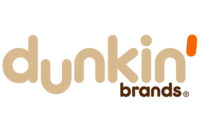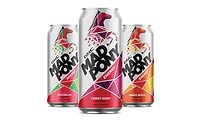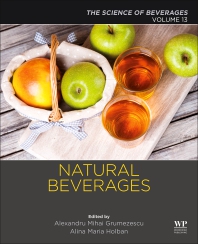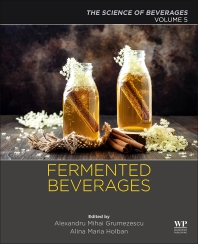Cognitive health appeals to all demographics
Omega-3s popular ingredient for brain health

Omega-3 DHA has the strongest body of scientific support for cognitive health, says Volker Berl with Oceans Omega LLC. Mamma Chia’s Vitality Energy contains 2,500 mg of omega-3s in a 10-ounce bottle. (Image courtesy of Mamma Chia)

Ingredients that support focus and memory are popular across all demographics, ingredient suppliers note. Focus+ features a blend of vitamins, amino acids, antioxidants and other nootropics. (Image courtesy of Focus Now Solutions LLC)

CoffeeBerry coffee fruit extract can increase serum levels of brain-derived neurotropic factor, a key neuro-protein involved in cognition, according to Brad Evers of FutureCeuticals. KonaRed utilizes CoffeeBerry in its beverage portfolio. (Image courtesy of KonaRed Corp.)



An estimated 5.2 million Americans suffer from Alzheimer’s disease, and although the majority are older than 65, younger-onset Alzheimer’s impacted 200,000 people last year, according to the Alzheimer’s Association, Chicago. Furthermore, total payments in 2014 for all individuals with Alzheimer’s disease and other dementias were estimated at $214 billion, the association adds.
Increasingly, attention is being put on brain health and preventative measures such as diet and exercise in line with consumers, particularly baby boomers, expressing concerns about memory loss and dementia. However, ingredients that help consumers maintain their cognitive abilities are emerging to help all age groups to support brain development, focus and more.
“Cognitive health applies to all ages, as newborns and children develop cognition early, [middle-aged people] count on it for their careers, and the older generation strives for maintenance for as long as possible,” says Volker Berl, founder and chief executive officer at Oceans Omega, Montvale, N.J. “Consumers are naturally interested in maximizing intake of the right ingredients to maintain cognition for a lifetime, supporting memory, alertness, attention, mood and focus.”
Many ingredients are associated with cognitive health, but omega-3 DHA has the strongest body of scientific support, according to Berl. But vitamin D; coenzyme Q10; phosphatidylserine; magnesium; resveratrol; pycnogenol; vitamin E; and botanicals such as ashwagandha, ginkgo biloba, vinpocetine, ginseng and curcumin also are considerations, he adds.
Oceans Omega offers a range of stable omega-3 ingredients that are water soluble and clear because of its stabilization technology and sustainable sources of omega-3s from ingredient partners such as DSM Nutritional Products, Kaiseraugst, Switzerland, and Nutegrity, Irvine, Calif. OTEC 300LDHA delivers life’sDHA from DSM, a fish free, vegetarian and sustainable source of DHA from algae, the company says. OTEC 250CL-K delivers OmegaActiv from Nutegrity, a pure, sustainable, vertically integrated source of omega-3s from menhaden that contains a balanced level of omega-3s DHA, EPA and DPA, according to the company.
Used in clear beverages and liquid nutritionals, OTEC ingredients increase shelf life for finished products at ambient temperatures, the company says. They also are compatible with most beverage processing conditions such as hot fill, cold fill, carbonation and pasteurization, according to the company.
Mental energy
Nutegrity closely follows the advent of brain health and the focus of today’s consumers on products that provide a memory boost or afternoon edge.
“The [brain health] category is interesting to us because of aging baby boomers and challenges from cognitive function, but millennials and their brains are hardwired to go fast, and they are looking for some type of edge,” says Matt Phillips, chief commercial officer at Nutegrity.
The focus is not only on memory and improved cognitive function, but also on general brain health as well as antioxidants and anti-inflammation specific to brain inflammation in relation to diseases, he says.
Nutegrity, a division of Omega Protein Corp., Houston, focuses its primary business in fishing and omega-3s, Phillips says. From a beverage standpoint, milk companies can use omega-3s in their formulations, but the company also produces dairy protein as well as a line of nutraceuticals.
“Most of the work we’re doing is focused on antioxidants and higher concentrations of omega-3s,” Phillips says. ”At one time, most companies were doing product development and spending time on ingredients, and now they are looking to ingredient suppliers to … come to the table with a turnkey solution.”
Focus formulas and energy drinks openly tout the cognitive benefits of the ingredients to appeal to a wide audience, but the claims have to be backed by scientific evidence or beverages risk being pulled from store shelves. As a result, many companies dedicate considerable time substantiating new and existing claims and discovering ways to use their ingredients based on findings in clinical trials.
Oceans Omega closely follows studies related to adolescents and brain health. For example, to determine the effects of algal DHA supplementation on reading and behavior in healthy school-aged children, researchers conducted the Docosahexaenoic Acid Oxford Learning and Behavior (DOLAB) Trial and reported that supplementation with 600 mg each day with algal DHA for 16 weeks improved reading and behavior in healthy school-aged children, aged 7 to 9 years old, with low reading scores.
“We work on educating the end producer,” says Karen Todd, director of global brand marketing at New York City-based Kyowa Hakko U.S.A. Inc. The company’s Cognizin product features citicoline, which increases cellular synthesis and energy, she says. Ingredients such as Cognizin are associated with boosting brain energy, supporting mitochondrial health, and boosting levels of ATP, according to the company’s research. This ingredient also is associated with increased focus and concentration as well as memory storage and recall.
“We do clinical studies on raw materials [with healthy subjects], and results of that help us identify what levels are appropriate to make claims,” Todd says. “The producer and finished product company do their pre-market test, but they’re looking at the science behind it to support their claims from the start.”
Kyowa Hakko is replicating clinical trials done with millennials, pre-menopausal women and baby boomers with more targeted groups including adolescents and athletes.
Futureceuticals, Momence, Ill., also sees the value of clinical trials and is in the midst of several that involve its ingredients including CoffeeBerry coffee fruit, a line of powders and concentrates of the fruit of the coffee plant, including the bean.
“We consider demographics when we’re choosing outcomes to focus on for our claims,” says Brad Evers, vice president of business development. “In the case of CoffeeBerry coffee fruit extract, we discovered that it has a unique capacity to increase serum levels of brain-derived neurotropic factor (BDNF), which is a key neuro-protein involved in cognition, mood and other key neuro-processes. We chose to focus on cognition and mood, given the enormous public interest in cognitive and mental health at all age levels. Baby boomers frequently cite cognitive health as their No. 1 concern, and younger people are motivated to take action now to help ensure a higher quality of life as they age.”
Major research facilities around the globe are focusing on BDNF, and Futureceuticals has two studies that indicate that coffee fruit stimulates the body to produce BDNF, which is something brewed coffee does not do, according to the company.
“Our research on our coffee fruit products is at the forefront of new discoveries for cognitive health,” Evers says. “CoffeeBerry meets the demand for functional beverage ingredients that are natural and offer a value proposition.”
Focus on claims
Regulations as well as the flavor of the ingredients in their natural state can have an impact on beverages designed to improve memory and focus or reduce the impact of aging on the brain.
“The biggest trend with cognitive ingredients is really attention given to caffeine and energy drinks by the Food and Drug Administration (FDA) and [the decision to] crack down on amounts,” Kyowa Hakko’s Todd says. “Cognizin is a non-stimulant without negative side effects. Energy drinks use Cognizin [as a replacement for caffeine], and many companies are looking to reformulate and include it at the efficacious dose.”
But special treatment is required for cognitive ingredients to be beverage compatible, shelf stable, soluble and taste free. “Antioxidant beverages, focus beverages, and general brain-health and protein beverage ingredients are bitter, and [beverage-makers] have to figure out a way to mask [them],” Nutegrity’s Phillips says. “Another big challenge is solubility, and we’re finding ways through agglomeration or other techniques to make them suspend in a liquid.”
Oceans Omega is able to counteract the instability and protect them from oxidizing with new technologies, but aftertaste still is a challenge.
“Polyunsaturated fatty acids have the propensity to oxidize quickly and develop very repugnant odor and taste offnotes,” Berl says. “Many [omega-3] products still have a fishy or marine aftertaste, and their manufacturing requires an increased complexity in processing and handling these sensitive ingredients in the production processes.”
Certain nutrients also just don’t mix well, according to Russ Hazen, North American premix innovation manager for Fortitech Inc., Schenectady, N.Y.
“Certain iron compounds can have unfavorable effects on product quality and consumer acceptance by increasing the oxidation of polyunsaturated fatty acids,” Hazen says. “On the other hand, inclusion of suitable amounts of antioxidants, like vitamin E, is important to protect polyunsaturated fatty acids from oxidation. In liquid beverages, adverse interactions between calcium and phosphorus can be tricky and can result in unsightly mineral precipitation products under certain conditions”
When bitterness is a factor, masking agents can address this issue as well, according to Kyowa Hakko’s Todd. Futureceuticals, however, will provide its bitter CoffeeBerry products and extracts as-is because the more natural state is preferred by its customers, Evers says.
Looking for a reprint of this article?
From high-res PDFs to custom plaques, order your copy today!











